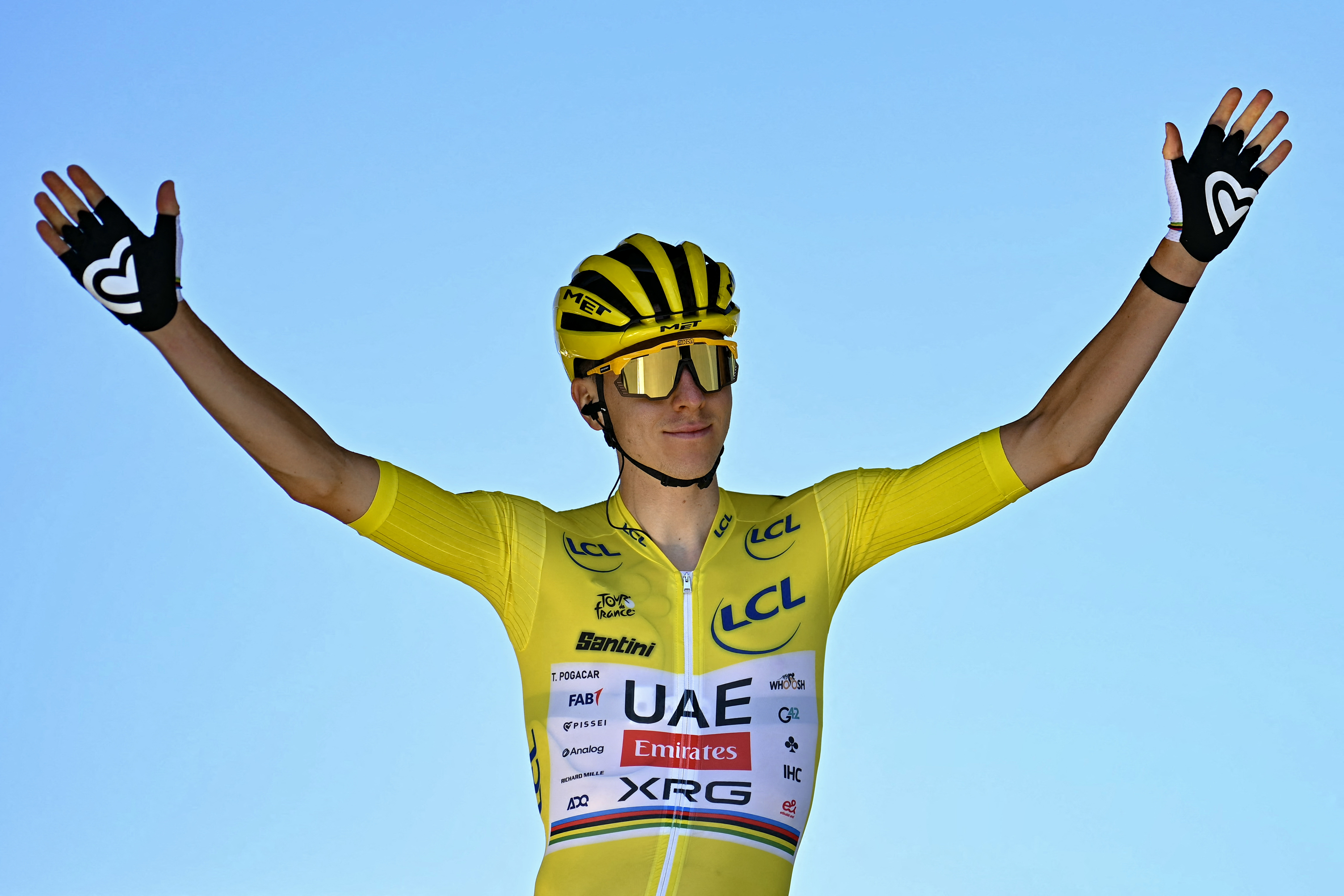Why did Tadej Pogačar give up the yellow and polka dot jerseys at the Tour de France?
The world champion will be back in the rainbow bands for stage seven at least


The latest race content, interviews, features, reviews and expert buying guides, direct to your inbox!
You are now subscribed
Your newsletter sign-up was successful
Viewers switching on to watch stage seven of the Tour de France might be surprised to see that Tadej Pogačar, the world champion, will be back in the rainbow bands, not the yellow jersey, and not the polka dots either. For the first time since stage four, the Slovenian will be in his normal kit, although that is obviously that of world champion, not just the ordinary UAE Team Emirates-XRG strip.
After Wednesday's stage five time trial Pogačar was not only in the race lead, and therefore yellow, but also in charge of the king of the mountains competition, and the points classification too.
Just 24 hours later, the 26-year-old was not present on the podium for any of those three jerseys, with Mathieu van der Poel (Alpecin-Deceuninck) back in the race lead, Jonathan Milan (Lidl-Trek) in green, and Pogačar's team-mate Tim Wellens in the polka dots.
This was not a complete accident. Pogačar might have only just ceded yellow – Van der Poel leads by one second – but he was comfortable letting the race lead go, that's why the break was allowed to build up seven minutes of advantage. Wellens deliberately took points on the Côte de la Rançonnière, 56km into the stage, to put himself back in the lead of the KOM competition, while green was always going to go back to one of the sprinters after the intermediate sprint.
Therefore, the question is why? Why would the Slovenian readily give up these jerseys?
UAE have said that they were not deliberately trying to give up yellow, but it is not bad thing that it happened; it means less protocols for Pogačar after stage six and before stage seven, less media time, less podium time, fewer jerseys to sign and VIPs to greet.
As my colleague Chris Marshall-Bell wrote yesterday, since turning pro in 2019, he’s only ceded a race’s leader’s jersey on three occasions, so this is a novel occasion. In truth, Pogačar might very well seize back the yellow jersey on stage seven, given the steep finish in Mûr-de-Bretagne, but one day less in yellow is the kind of precious breather that counts at the Tour de France.
The latest race content, interviews, features, reviews and expert buying guides, direct to your inbox!
Van der Poel is not a threat to the overall, so UAE are not unhappy for him to be in yellow, and if it means his team do some work on the front, all the better. It is customary that the race leader's team leads the race; given it is only a second's advantage, this might be negligible, but it is still something.
If it had been another rider, one who could challenge in the mountains, then things might be dicier, like at last summer's Vuelta a España when Ben O'Connor claimed the race lead from Primož Roglič on stage six, and didn't give it back until stage 19. It's not a given that yellow will come back in Pogačar's direction, but this is very likely.
The polka dot jersey, meanwhile, is a distraction that Pogačar could do without. He is not at the Tour to win mountains points, and while he won it in 2020 and 2021, this was by accident more than anything else. Wellens in the polka dots will give the Belgian some time in the spotlight, and save more time for the Slovenian. In fact, the team had tried to organise things so Pogačar was out of the polka dots for the time trial on stage five, but this didn't work.
Pogačar is also no longer in the lead of the points classification, but this was never going to last, given the amount of points on offer at intermediate sprints – Milan is aiming for green, so it only makes sense that he is now back in control there.

Adam is Cycling Weekly’s news editor – his greatest love is road racing but as long as he is cycling, he's happy. Before joining CW in 2021 he spent two years writing for Procycling. He's usually out and about on the roads of Bristol and its surrounds.
Before cycling took over his professional life, he covered ecclesiastical matters at the world’s largest Anglican newspaper and politics at Business Insider. Don't ask how that is related to riding bikes.
You must confirm your public display name before commenting
Please logout and then login again, you will then be prompted to enter your display name.